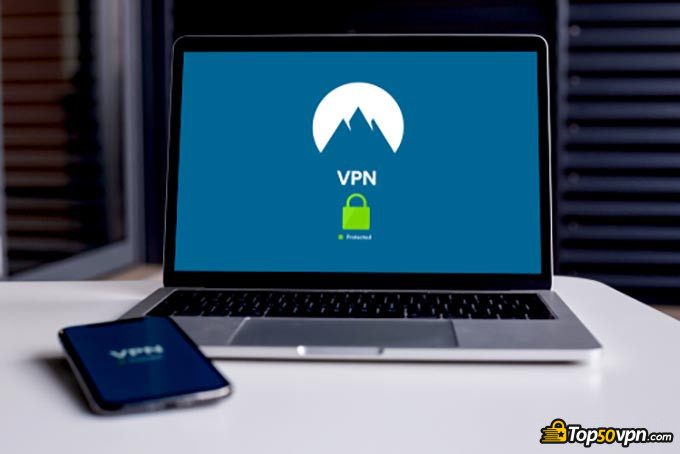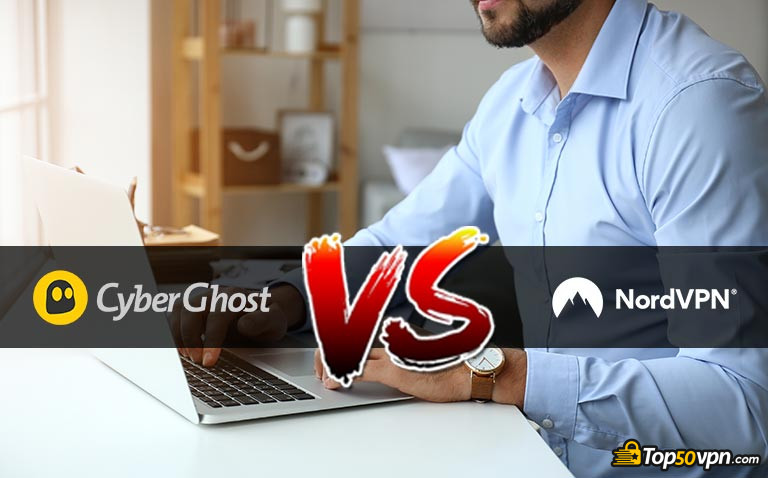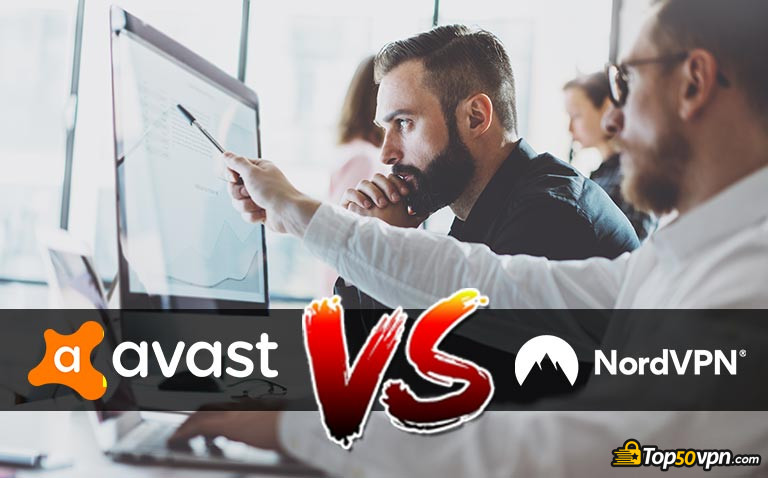
Researching the topic of VPNs online, you’re likely to encounter some different types of VPN providers. If you’re an industry newcomer, it can get confusing quite fast - this number of main types, that number of sub-types, etc.
No need for that confusion, however - the vast majority of people are only going to need to know about the main types of VPNs in order to understand the differences of how these pieces of software work. There are 3 main types in total, and we’ll cover them in this tutorial.
All of the three types are typically used for different reasons, though, so it’s definitely worth discussing that, too. And don’t worry - while the terminology might get confusing at times, if you’re not trying to become a network security specialist, you won’t need to remember all of the abbreviations and terms in order to see and understand the big picture.
What is one feature that a good VPN provider should have?
Consumers use VPNs to keep their online activity safe from prying eyes. For example – most people are unaware that many ISPs track all the details of their customers’ site visits. A VPN stops this Orwellian behavior dead in its tracks. However, there’s no use swapping one tracking entity for another. Consumers should only use a VPN that has a firm and transparent “no logs” policy.
Table of Contents
- 1. The Usability Aspect of All the Types of VPNs
- 1.1. Secure Connection Establishment for Communication Purposes
- 1.2. File Transferring (Sending, Receiving and Sharing)
- 2. The Big Three
- 2.1. Remote-Access VPNs
- 2.2. Intranet-Based S2S VPNs
- 2.3. Extranet-Based S2S VPNs
- 3. Finding the Best VPN That Suits You
- 4. Conclusions
The Usability Aspect of All the Types of VPNs
While the different types of VPNs are going to be useful for different types of people and situations, there are still some universal similarities and functions that they all share. To help you better understand these functions, let’s take it from the top.
A VPN is a Virtual Private Network. Each of those three words serve as individual explanations for all of the important features surrounding the tool.

The way that different types of VPNs work is by taking your IP address, masking it and then providing you with a (typically) shared, different IP. This IP comes from one of the (usually) many servers that the VPN utilizes to provide its services. Most commonly, people can choose which server to log in to at any given time.
In layman’s terms, a VPN makes it appear that you are actually someone else (in a different place) than you actually are. Whether you’re an individual person using a VPN for your own specific wants and needs, or a company trying to protect your data, the many types of VPNs are definitely useful.
That said, let’s explore these uses a bit closer.
Secure Connection Establishment for Communication Purposes
While you’re communicating with someone through a VPN, all of the messages, chat logs and voice mails remain completely protected. An example would probably illustrate this point a bit better.
Say, you’re working in a company. Within the company’s infrastructure, you and your colleagues use some sort of a messaging app to send and receive business-related messages. These can range from casual chats and advice all the way to sensitive topics about the state of the brand, and some internal processes.
Now, if this information was to get out into the public, it might cause a bunch of problems for the entire corporate entity. This is where the usability of the different types of VPNs comes in.

By utilizing a VPN to create a safe and private network, you can communicate with your team and not have to worry about a data breach or a server hack. The potential hackers wouldn’t be able to identify your IP address, since you’re using a VPN to mask it.
This doesn’t necessarily only concern companies, though. You might have some sensitive information in your own, private environment - communicating it with an active VPN eliminates the majority of leakage dangers.
Latest NordVPN Coupon Found:
GET 63% OFF
+ 3 Months Free
Looking for ways to secure yourself online? What if we told you that you can get the top VPN on the market for way less - grab NordVPN 60% discount now & get 3 months FREE!
File Transferring (Sending, Receiving and Sharing)
File sharing works in a very similar way as does communication. However, most of the time, both profession-related and individual files are going to be quite a bit more sensitive than a conversation over a messaging app, given that they tend to have more data packed into them.
In the same way that the various VPN types help you maintain private conversations online, they are also used to protect your files sharing activities, whether they’d be internal or external.
However, there’s another type of file sharing that you probably know about - torrenting.
Torrenting is the act of downloading a copyrighted or illegally-distributed file from a website that does not have permission to host and share it. The act itself is pretty illegal, and can yield all of the parties involved a whole lot of trouble.

Nonetheless, people still actively do it every single day.
There are a couple of good reasons for why you’d want to use some specific type of VPN while torrenting (whether sending or receiving) something from the web. The first reason has to do with the security of your own identity - if there happens to be a tracker or a keylogger in your torrent, it will see the fake IP address instead of your real one.
That said, that’s not the main reason why people turn on whatever types of VPNs that they might have. No, that has to do with the authorities.
We’ve established that torrenting is illegal - if you’re caught, there are some hefty fines and consequences involved. And what’s the best way of not getting caught? You’ve guessed it - using a VPN.
The Big Three
Earlier on in the tutorial, I’ve hinted that there are many different types of VPNs out there, and that some of those types have sub-types and so on.
Your average, everyday VPN user isn’t going to need to know that - unless you’re really into computer science, network connections and protocol management, being knowledgeable about the 3 main VPN types is going to be more than enough.

Did you know?
Have you ever wondered which VPNs are the best for your security & privacy?
See & compare TOP VPNs side by sideRemote-Access VPNs
As far as the three main types of VPNs are concerned, this type is going to be the one you're likely familiar with the most.
Remote-access VPNs are the most commonly-encountered VPNs these days. The vast majority of commercial VPNs that you see online and that target individual users are of this type of VPNs.
Now, how do they work?
A remote-access VPN is used as a medium through which a connection is established between you and the “party” on the other side. This party can be a website, another device, your company, a messaging system, and so on and so forth.
As the name implies, remote-access VPNs connect you and the other party via a remote, private and secure server. VPNs are considered online safety tools because there’s an added layer of data encryption on top of that connection - most commonly, it’s the AES 256-bit data encryption combined with the OpenVPN protocol.

Out of all the types of VPNs out there, why are remote-access VPNs the most popular ones? It’s actually a combination of reasons.
First of all, this type of VPNs is very accessible. It doesn’t cost all that much for a user to sign up with one of the best VPN providers and start utilizing their private networking services.
Accessibility doesn’t only boil down to price, however. Remote-access VPNs usually come with an easy-to-use interface - you don’t need to configure anything yourself, and everything that you might actually need to do is displayed in a clear box with drop-down menus, tickable options and easily-understandable buttons.
Finally, it’s worth noting that, out of all the types of VPNs out there, remote-access ones are most-suited for individual users. While there are many companies that do actually use this type of VPN software, that would actually be the job for site-to-site VPNs.
Intranet-Based S2S VPNs
While both of the S2S (site-to-site) types of VPNs are somewhat similar in how they work, they are still too big (and different, in certain important aspects) to be condensed as a single type. So, let’s take a look at intranet-based S2S software first.
Intranet-based site-to-site VPNs are mostly used by smaller companies. Well, I guess “smaller” isn't necessarily the word to use here - most companies utilizing this type of a VPN have a few different sectors scattered all around. That’s usually why they actually need a VPN, in the first place.
Intranet-based VPNs help companies connect different sectors into a single, secure network. This is done by connecting all of the local area networks (or, as they are better-known as - LANs) into a single wide area network (WAN).

As noted above, out of all of the types of VPNs out there in the industry, this type is most popular with companies. That’s because, utilizing intranet-based site-to-site VPNs, these companies can then connect all of their parties into a single network - it’s hassle-free, rather simple to set up and (most importantly) safe.
This type of VPN is going to work great for companies in their own, individual ecosystems. However, what if the corporation has partners from entities that are separate from the company in question? While they are probably going to want to utilize a secure connection with those partners, too, they probably aren’t going to be using the same intranet.
No, this is where the third type of VPNs comes in - extranet-based site-to-site VPNs.
Extranet-Based S2S VPNs
Extranet-based site-to-site VPNs are very similar to their above-discussed alternatives. The key difference, however, lies in the area in which they are used.
While being utilized by the same companies that use intranet-based site-to-site VPNs, extranet S2S VPN software allows these companies to establish secure network connections with other companies (partners), without compromising the intranet within the company in question.
Confusing? Let me put it this way:
- Intranet-based S2S VPN - good for a company with multiple sectors for them to communicate with one another.
- Extranet-based S2S VPN - good for the same company to communicate with other companies. It’s a separate connection than that of intranet-based VPN, so the other company won’t see your company’s private conversations, files and so on.
Both (all three) of these types of VPNs have the essential features in common - they are all secure, use data encryption, specific protocols (OpenVPN, or else) and can be utilized for anything from file sharing all the way to content streaming.
That being said, a company is probably likely to go with both extranet and intranet-based VPNs - it all depends on the scale of its operations.
Finding the Best VPN That Suits You
With the three types of VPNs done and figured out, there’s still the question of which of these are going to suit you best.
Honestly, at this point, it’s pretty self-explanatory - individual users who are looking for a VPN for their own wants and needs should probably opt to go with the remote-access alternatives, while companies should focus finding the best intranet and extranet-based S2S VPN options.
While that’s all fine and dandy, it seems easier than it actually is. With such an abundance of different VPN providers filling the market, industry newcomers are likely going to have a pretty difficult time picking and choosing the best option for themselves.

Unless, of course, they follow some expert and user advice.
Whether you’re looking for the best business VPN or the best VPN in general, you can take a look at the lists on our official website. With the help of experts and individual users just like you, we’ve refined the top VPN providers for each of the different categories you might need.
| EXPRESSVPN | CYBERGHOST | PRIVATEVPN | |
| 3000 | 607 | 150 | |
| 94 | 30 | 60 | |
| 3 | 7 | 6 | |
| Visit site Read review | Visit site Read review | Visit site Read review |
|---|
Table: The features of some of the best VPNs out there
That said, most of the VPNs you’ll come across on the lists are going to be remote-access ones - just something to keep in mind.
Conclusions
To conclude, there are three main types of VPNs you should be aware of - remote-access, intranet-based S2S and extranet-based S2S ones.
Remote-access VPNs are great for individual users - they are fast, cheap, reliable, and come equipped with all of the features you might need during your daily browsing activities.
Intranet-based site-to-site VPNs are useful for companies that want to build a secure network within their own infrastructure. These VPNs make the communication processes between colleagues a lot more safer.
Finally, extranet-based site-to-site VPNs are most commonly used between two companies or other two corporate entities. This type of VPN protects your internal data, while also keeping your connection with the other company secure and fluid.
And remember - if you’re having trouble finding the best types of VPNs out there, do check out our list of the best VPN providers of the year.
With the hope that the information about the VPN types sticks, I thank you for reading, and wish you the best of luck!
Contributed by: Paul Lipman , CEO at BullGuard
Paul Lipman is CEO of BullGuard, an award-winning cybersecurity company focused on the consumer and small business m...
Read Full Bio...Leave your honest feedback
By leaving your honest opinion you can help thousands of readers to choose the best VPN. We accept genuine & helpful user feedback, either positive or negative. Have in mind that biased feedback will not be published. If you want to share your opinion, experience or advice, we want you to spill the beans!














